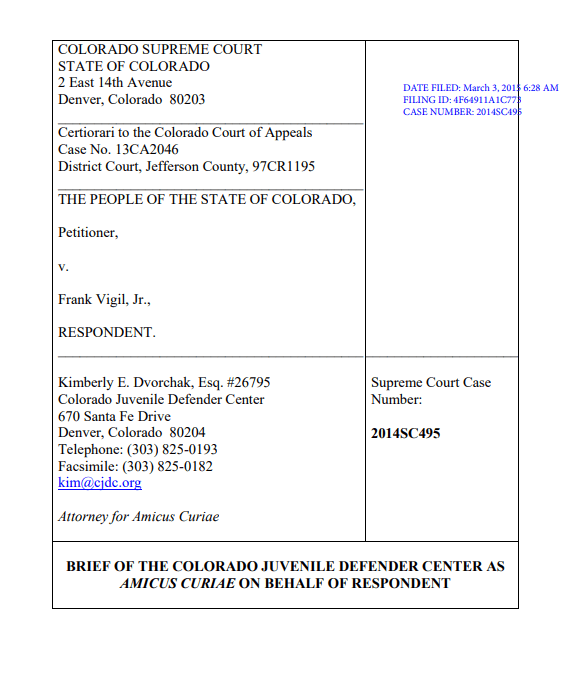
Summary of Argument
The United States Supreme Court decisions of Miller v. Alabama, Graham v. Florida, and Roper v. Simmons establish that children are constitutionally different from adults for purposes of sentencing. In each case the Court struck disproportionate sentencing practices that denied considerations of youthfulness and individual circumstances. Under the rules announced by the Court in Miller, Graham, and Roper, constitutional juvenile sentencing requires: (1) consideration of the mitigating attributes of adolescence that apply to all juveniles as a class; (2) consideration of each juvenile’s individual history and unique personal and offense characteristics; and (3) a meaningful opportunity for release based upon a young person’s demonstrated maturity and rehabilitation.
Colorado’s mandatory adult sentencing scheme that required Frank Vigil, Jr. and forty-seven other juveniles be sentenced to life in prison without the possibility of parole violates the Eighth Amendment to the U.S. Constitution and Miller. The correct remedy to this constitutional violation is to remand Frank Vigil, Jr.’s case to the trial court for an individualized sentencing hearing with judicial discretion to impose an appropriate constitutionally proportional sentence. Because Miller and Graham require individualized sentencing that considers each juvenile’s individual history and unique personal and offense characteristics, in addition to a meaningful opportunity for release, the trial Court properly ordered a new sentencing hearing with judicial discretion for Frank Vigil Jr.